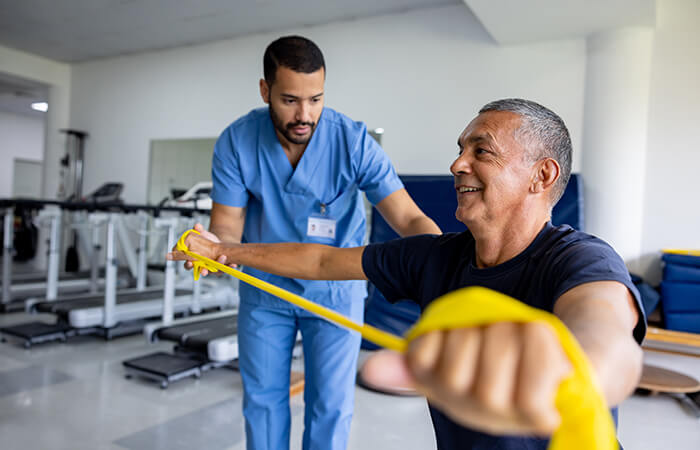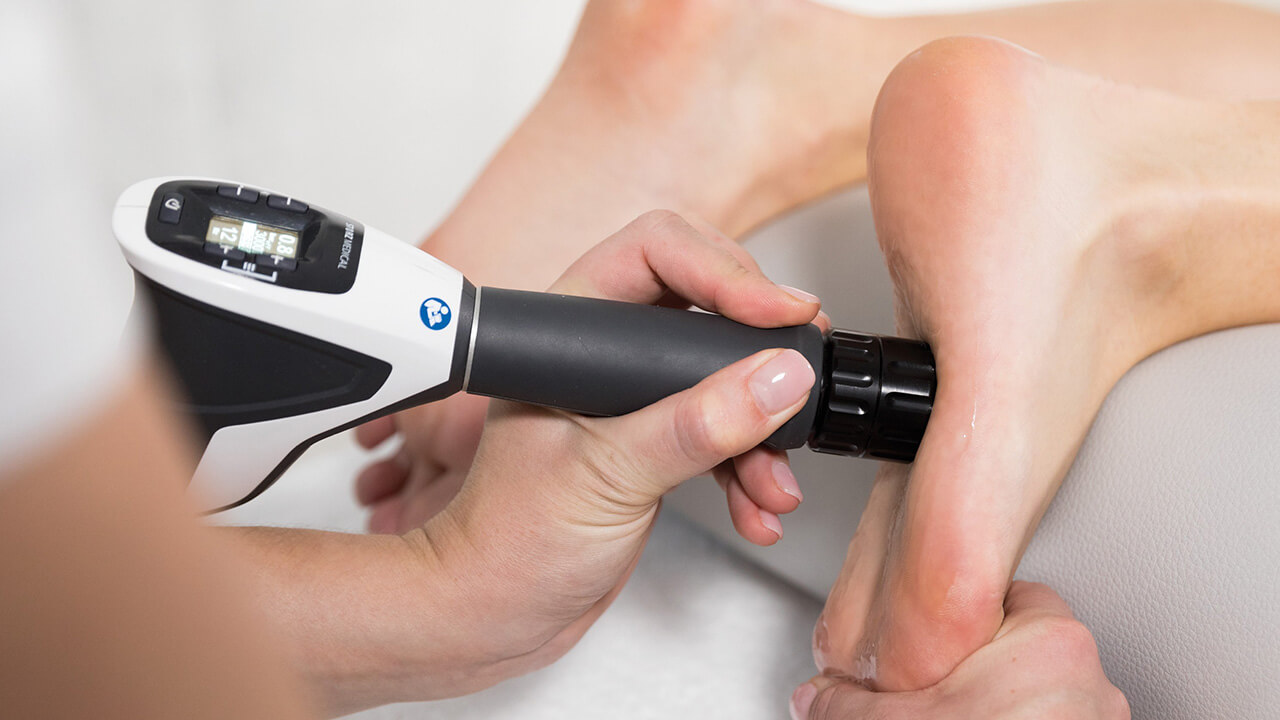Direct access without a referral or prescription to physical or occupational therapy provides you with immediate access to start your treatment without delay.
Occupational therapy
Occupational therapists at Prevea Health help you restore function to live independently.
.jpg?width=700&height=450&ext=.jpg)
.jpg?width=700&height=450&ext=.jpg)
Why choose Prevea therapy to help you heal as fully as possible?
When part of your body isn’t working how it should, your overall health can suffer. No one understands that better than Prevea Occupational Therapy (OT).
Living independently and free from barriers is important to anyone’s quality of living. OT focuses on developing or restoring function for daily activities, such as dressing, cooking, working, playing or exercising to help children and adults live as independently as possible.
Our comprehensive evaluation and treatment options ensure you are an active participant in your treatment plan. You will work closely with your occupational therapist and use the techniques you have learned in everyday situations as often as possible.
Our experts specialize in
1. Medical history and review of records:
- Review of the individual's medical history, including any diagnoses, medications and surgeries.
- Assessment of any physical or cognitive impairments that may affect driving.
- Evaluation of a person’s physical abilities, such as range of motion, strength and the ability to walk without assistance
- Assessment of visual and cognitive abilities, including:
- Vision/ Depth perception
- Road sign recognition
- Attention
- Memory
- Reaction time
- Decision-making
- A written report summarizing the assessment findings and recommendations for driving, which may include:
- Restrictions on driving (e.g., daytime only, restricted areas, no driving)
- Adaptive equipment recommendations/referral
- Referral for behind the wheel test, with a certified driver
- Recommendations for follow-up evaluations to monitor the individual's driving abilities and ensure ongoing safety.
The specific components of a driver's assessment will vary depending on an individual's circumstances and the purpose of the evaluation. A referral is required. This service is available for cash pay: $200
Find a provider
Find a provider
Find a provider
Common conditions:
- Difficulty with activities of daily living (ADLs) like bathing, dressing, and eating
- Cognitive impairments (e.g., memory problems, difficulty concentrating)
- Fine motor difficulties
- Lymphedema
- Incision/radiation tissue restrictions
- Adaptive equipment and assistive technology
- Home modifications
- Energy conservation techniques
- Cognitive rehabilitation strategies
- Activities of daily living training
- Lymphedema management
- Manual therapy techniques (e.g., massage, mobilization)
- Improved function: Regain independence in daily activities
- Enhanced quality of life: Experience less pain, fatigue and anxiety
- Increased confidence: Feel more empowered to manage challenges
- Better overall well-being: Improve physical, emotional and social health
Find a provider
Lymphedema is swelling caused by a build-up of lymph fluid in the body. The lymph system (lymphatic vessels) filters and drains excess fluid in your body. If the lymph system is damaged, the fluid builds up and causes swelling. Lymphedema is recognized as a complication following cancer treatment; however, it can develop from edema that is not managed. In rare instances, a person is born with a challenged lymphatic system.
Treatment options from Prevea’s expert team of therapists include:
- Compression garments/bandaging to maintain reduction
- Decongestive therapy
- Decrease swelling
- Lymphedema treatment
- Manual lymphatic massage
- Pneumatic pump to enhance swelling reduction
- Skin care and scar management
- Wound management
Treatment options include:
- Adapted eye movements
- Age-related macular degeneration
- Cataract
- Concussion therapy
- Contrast enhancements
- Diabetic retinopathy
- Glare control
- Glaucoma
- Night blindness
- OrCam trainer
- Proper use of magnification devices
- Retinitis pigmentosa
- Specialized lighting
- Stargardt's DiseaseSubchoroidal neovascularization
- Subchoroidal neovascularization
Find a provider
When injury, illness or disease affects a patient’s nervous system, we stay at the forefront of therapy techniques to help enhance balance and strength, restore movement, and improve speech and cognition. It’s a true collaboration across multiple disciplines, including physical, occupational and speech therapy. And, it’s all focused on enhancing the quality of life of our patients, their families and their caregivers.
Prevea’s neurological therapy program provides specialized and comprehensive care for any type of neurological condition, short or long term, that can benefit from therapy.
Treatment options are available to people who experience:
- Amyotrophic Lateral Sclerosis (ALS)
- Bioness® H200 and L300 electrical stimulation for improved hand movement and walking
- Brain injury
- Brain tumors
- Guillian Barre
- Multiple Sclerosis
- Muscular Dystrophy
- Muscular Dystrophy Clinic
- Parkinson’s Clinic
- Parkinson’s Disease
- Specialized weight-supported walking equipment
- Spinal cord injury
- Stroke
- Visual perceptual rehabilitation program
We work closely with your physician to develop a personalized treatment plan, which may include manual therapy, exercise, strength training and options for pain control, to help you regain independence after an injury or surgery so you can get moving again and back to the things you enjoy most in life.
- Arthritis pain
- Blood flow restriction therapy [link to web page]
- Custom Splinting
- Elbow pain and injury
- Ergonomics
- Hand therapy
- Wrist pain and injury
- Osteoporosis management
- Shoulder pain and injury including rotator cuff
- Fine motor skills development
- Work-related injuries
The chronic pain treatment at Prevea uses a variety of evidence-guided treatments. The length of the program is determined by the individual’s needs and will be discussed at the first appointment. Most insurance programs will cover this type of physical rehabilitation.
At the first appointment, a thorough examination will be performed. This will consist of evaluation of your muscles, nerves and overall movement patterns. We will discuss your current thoughts on pain and scientific research regarding pain science. Together, based on our findings, we will create a specific plan for you.
Conditions we treat include:
- Arthritis pain
- Complex Regional Pain Syndrome (CRPS)
- Myofascial pain
- Phantom limb pain
- Posture pain
Our pediatric specialized team of occupational therapists provide care to young patients for everything from orthopedic injuries to neurological conditions, to juvenile arthritis or cerebral palsy. Prevea also partners with HSHS St. Vincent Children’s Hospital in Green Bay to offer your child the most advanced, expert care in the area.
For a complete list of services visit our therapy for pediatrics page.
Find a provider
No referral needed
More resources from Prevea Health

Shockwave Therapy

Parkinson's Clinic


Tenex Health TX
Find a therapist today
You deserve to heal as fully as possible. Trust the Prevea Occupational experts to help you get there. Contact us today to start the recovery process.